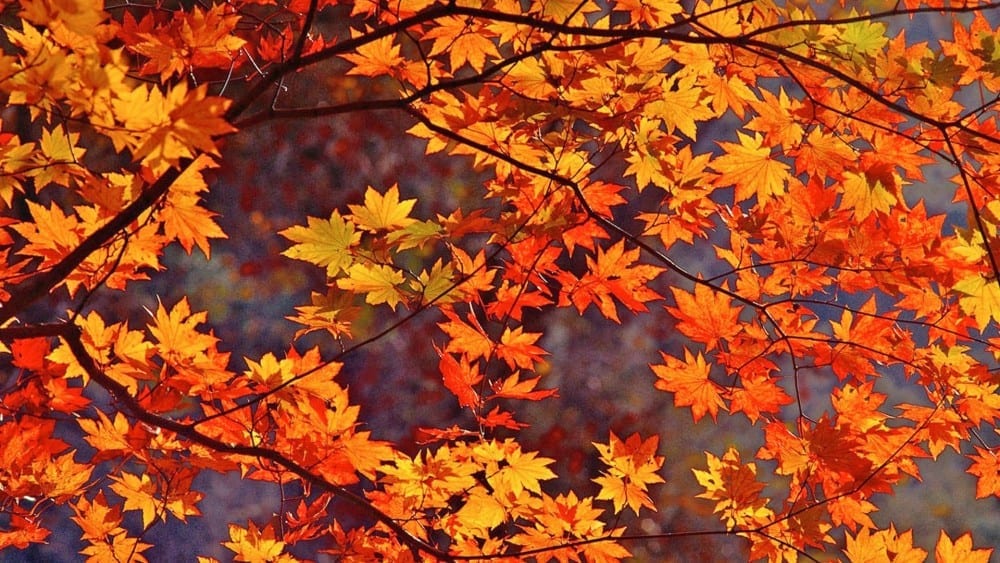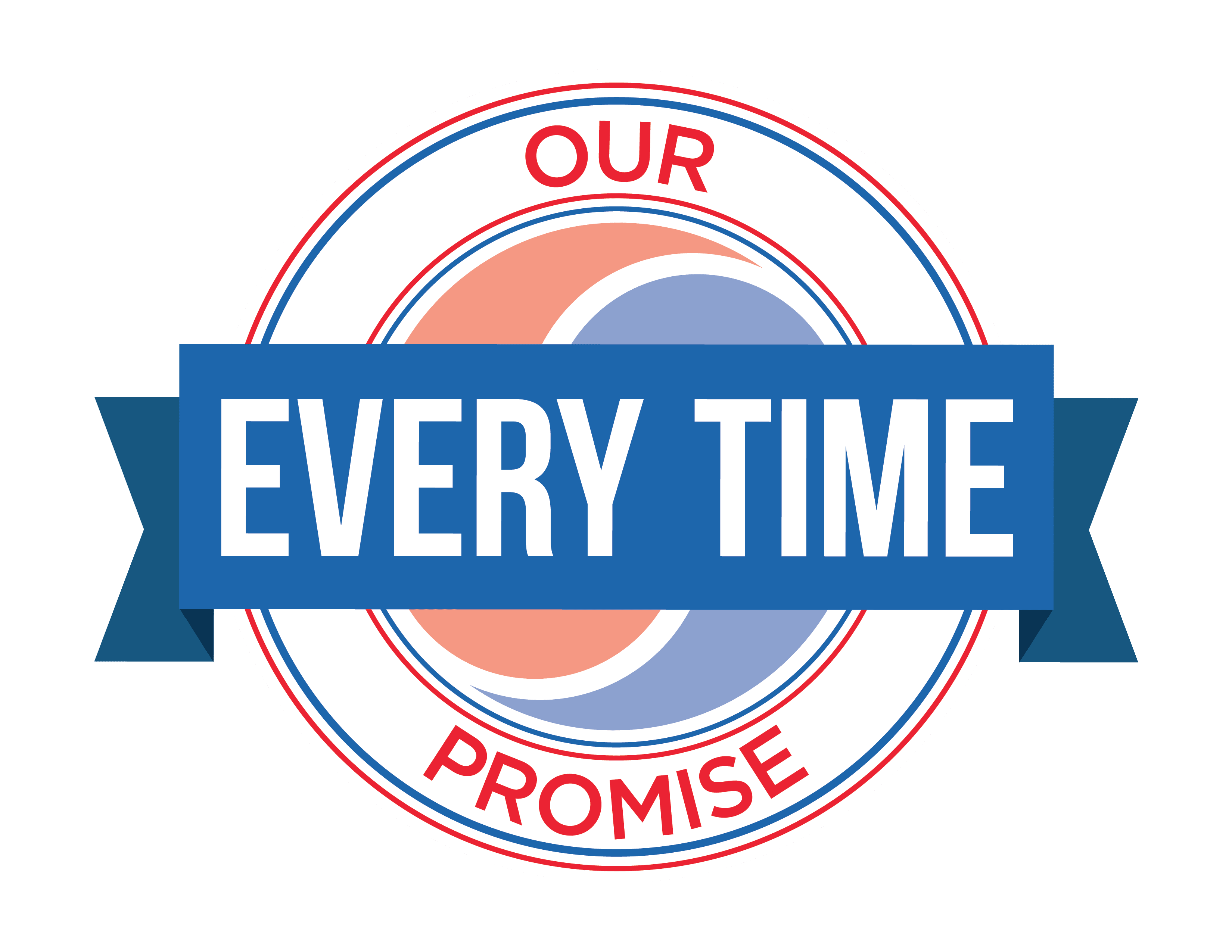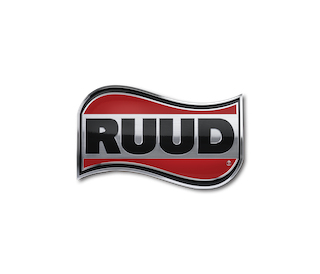Maintaining your plumbing system in the fall is essential to prevent issues as temperatures drop. While it may seem like winter is far off, fall is the best time to knock out your winter preparation to-do list. To help prepare you for the colder months, we have ten fall plumbing tips to get your home and plumbing system prepped and ready for winter.
1. Clean the Gutters
Though gutters are technically not a part of your plumbing system, they are responsible for keeping water out of your home and landscape. A blockage in your gutters can cause water to pool on the roof, which can eventually damage the roof and structure of your home. To avoid water damage, it’s ideal to clean your gutters twice a year—once in the spring and fall. For homes containing trees in their yard, consider a more regular gutter cleaning.
To efficiently clean your gutters, clear leaves and debris from the gutter and downspouts to prevent clogging. Once the bulk of the debris is removed, flush the remaining debris and dirt using a garden hose or pressure washer. After the gutters are cleaned, ensure that the downspout is draining efficiently by spraying down the spout and checking for efficient drainage.
2. Disconnect Outdoor Water Hoses
Another essential home plumbing maintenance tip is to always check to ensure that outdoor water hoses are disconnected and drained. If your water hoses are left connected during colder temperatures, water inside the hoses can freeze and expand.
This expansion can cause faucets and any connected pipes inside your home to freeze and break. To help prevent this, simply disconnect your water hoses, drain them of any remaining water, and store the hoses in a dry area before cold temperatures set in.
3. Check Outdoor Faucets
After you remove the hose, check the faucet for any leaks or drips. If any of your outdoor faucets leak or drip, fall is the time to fix them. A leaking faucet can lead to water damage and severe plumbing issues during a freeze. Once your outdoor faucets are fully fixed, cover and insulate the faucets with a styrofoam insulation kit to prevent freezing.
If your spigot isn’t drained, frozen outdoor pipes often lead to a burst, which can cause water damage to your home’s exterior, foundation, and landscaping. By checking and properly winterizing outdoor faucets, you can prevent potential water leaks and damage to your home.
4. Close the Outdoor Faucet Shut-Off Valve
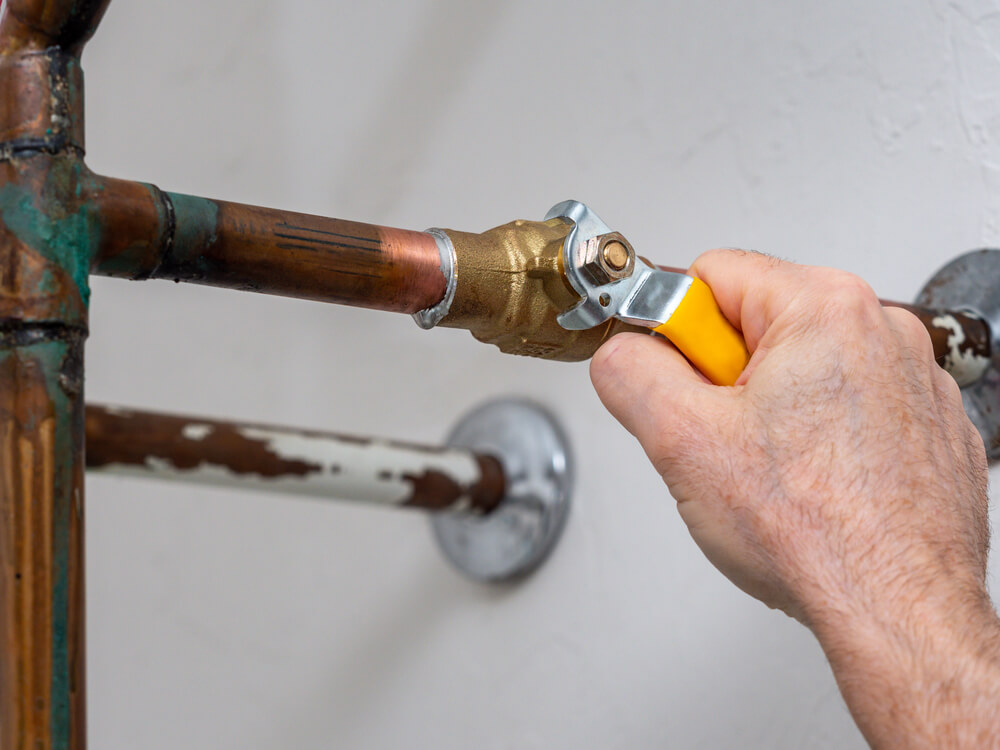
Many outdoor faucets have a shut-off valve around ten feet deep in your home, typically in a basement or crawl space. This valve lets you shut off the water to your outdoor spigot and then drain out the water in that ten-foot section of piping.
The water in the inner part of your home should stay warm enough to prevent freezing, and the outer ten-foot section of the pipe shouldn’t have enough water inside to expand and crack the pipe.
Adding this step to your plumbing maintenance checklist for fall is essential to prevent freezing. By shutting off the water supply and draining the remaining water from pipes, you can protect outdoor plumbing fixtures from damage, such as freezing and bursting.
5. Insulate Pipes
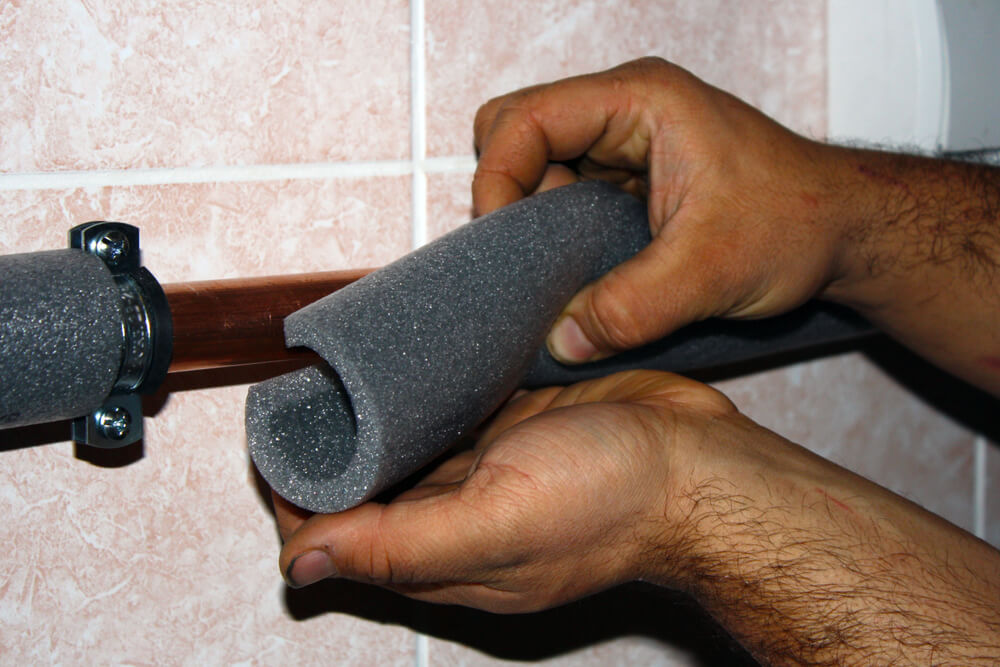
Insulating pipes in preparation for winter is a proactive measure that helps to protect your home, prevent water damage, and maintain the efficiency and functionality of your plumbing system, especially during cold weather. If any of your pipes are housed in non-heated areas, such as a crawl space or a garage, it is crucial to ensure these pipes are insulated.
This protection will help keep your pipes from freezing during the winter. A frozen pipe will burst eventually, leading to costly repairs and water damage. It’s essential to add this step to your fall plumbing checklist to prevent pipes from freezing.
6. Seal Gaps
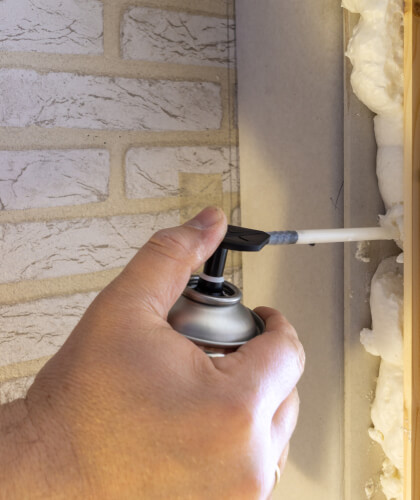
In areas where pipes enter your home, it is common for gaps between the walls and the pipes to develop over time. These gaps allow for cold air penetration, which could have a severe impact on your utility bill and even cause pipes to freeze.
Take some time reviewing where pipes enter your home and seal the gaps with weather stripping, caulking, and insulation.
7. Insulate Sump Pump
If your sump pump is exposed to extreme temperatures, it may freeze and be unable to operate efficiently. Inspect your sump pump before winter to make sure it is properly insulated and clean.
Selecting the insulation material for the pump is your first step. Common options include foam insulation, fiberglass insulation, or insulated pipe wrap. Next, measure and cut the insulation material to fit the dimensions of your pump. You can securely fasten the material to the pump using tape or zip ties. Lastly, don’t forget to insulate the discharge pipe connected to the pump as well.
8. Flush the Water Heater
As we move into winter, your water heater will be working much harder to provide the same level of hot water. To help your water heater run as efficiently as possible, have the tank completely flushed. By flushing the water heater, you are removing sediment buildup, which blocks proper heat transfer.
9. Inspect Sewer Lines
Have a professional plumber inspect your sewer lines for any signs of blockages or damage. Fall is a good time to address any issues before they potentially worsen during the winter months. A professional inspection can identify any areas of concern, such as exposed pipes or inadequate insulation, that could lead to freezing and subsequent pipe damage. Ensure that this step is on your plumbing maintenance list.
10. Check for Leaks
Inspect plumbing fixtures, pipes, and connections for any signs of leaks or drips. Addressing leaks promptly can prevent water damage and conserve water. Additionally, leaks can lead to moisture buildup in your home’s walls, ceilings, or crawl spaces.
In colder climates, this moisture can freeze during winter, potentially causing pipes to freeze and burst. By fixing leaks before winter, you can reduce the risk of freezing pipes and the associated water damage and inconvenience.
For assistance in preparing your home’s plumbing for winter, schedule online or call us at 859-361-7925. We’re here to help ensure your home and plumbing system are set to take on the harsh temperatures of winter.


 Skip to content
Skip to content

